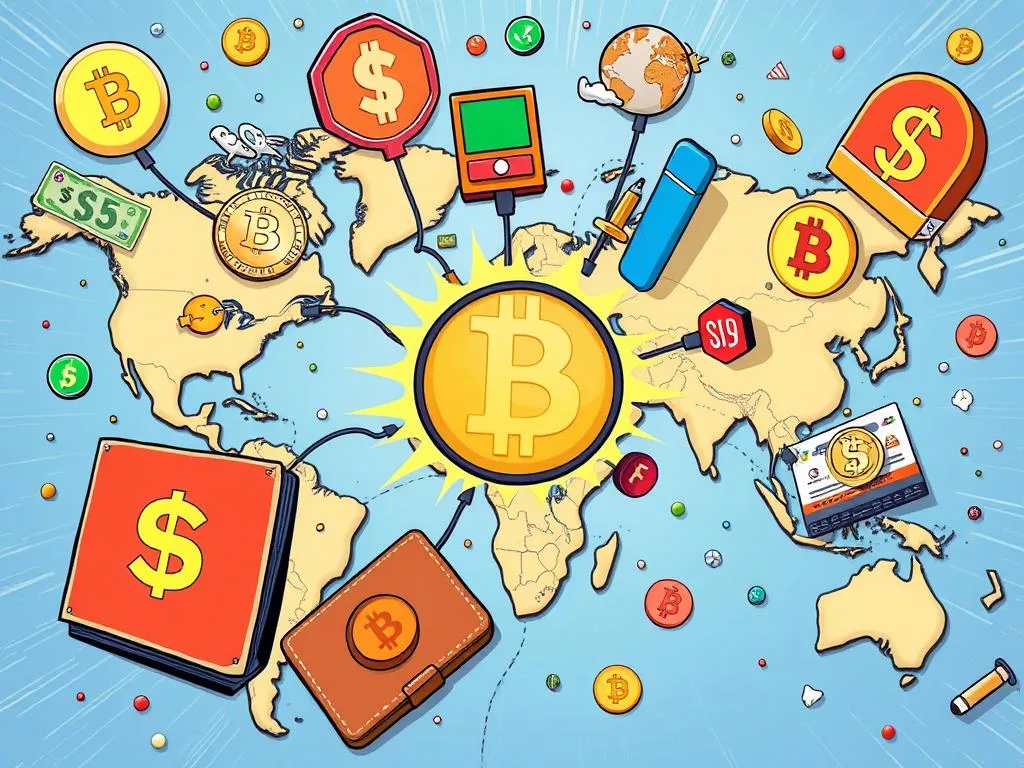Even with the rise of digital payments and cryptocurrencies, cash is essential for cross border payments. Cash has always been key, helping with trade and money flow across borders. It’s been a mainstay of commerce, dating back to ancient China.
But, its use is decreasing. In 2010, 56% of payments were in cash, dropping to 17% by 2020 (UK Finance, 2021). This shows a move towards digital payments. Yet, many places, including 61.19% of people surveyed, see cash as vital for both legal and illegal activities.
Many reasons keep cash important. People don’t always trust banks, and cash helps those who can’t use digital payments. The European Central Bank also notes cash’s ongoing role. Law enforcement finds it hard to track cash, making it a challenge to fight crime.
Interestingly, even as digital payments like international money transfers grow, cash is preferred for small deals. It’s used in almost half of all purchases under $10. But, the move towards a cashless society is speeding up, driven by health fears and digital ease.
Cash is vital in global payments, showing a world in transition. Its long history and current use highlight a shift from cash to digital. This guide will help you understand this changing world of cross border payments.
Understanding the Current Landscape of Cross Border Payments
The world of cross-border payments is changing fast. We’re moving from cash to digital platforms and seeing more use of cryptocurrency. This change is making global payment systems better and showing new trends in digital transactions.  New tech, rules, and the need for quick, safe payments are driving this change.
New tech, rules, and the need for quick, safe payments are driving this change.
In places like Colombia, cash is big, making up 78.4% of all transactions in 2023. But, electronic transfers and digital payments are growing. For example, 12.6% of transactions were electronic transfers, and 7.9% were debit card payments. Credit card use was small, at 1.2%. Systems like Secure Online Payment (PSE) and Transfiya are leading this digital move.
This trend isn’t just in Colombia. Around the world, digital wallets and apps like Alipay and WeChat Pay are becoming popular, mainly in Asia. They offer safe and easy ways to pay, appealing to tech lovers and businesses. Also, cryptocurrency is becoming more accepted, showing a shift towards new payment methods.
Reports from the UK and Europol also show changes in how criminals use money. There’s less cash use among those in power because of tighter rules against money laundering. This means more use of cryptocurrencies, showing the need for strong digital payment systems.
International payments are complex, with different banking systems and currency rates. They also face risks from politics. To handle these, businesses must follow rules like AML and KYC. They should also work with banks to get good deals and use integrated solutions to make things easier.
| Country | Primary Payment Method | Secondary Payment Method |
|---|---|---|
| Colombia | Cash (78.4%) | Electronic Transfers (12.6%) |
| China | Digital Wallets (Alipay, WeChat Pay) | Credit & Debit Cards |
| United States | Credit Cards | BNPL (Buy Now, Pay Later) |
| Germany | Direct Bank Transfers | Digital Wallets |
| Argentina | Cash Vouchers | Offline Payments |
To get a better grasp of these changes and improve international payments, businesses can check out this guide on business money transfers. It offers useful tips and insights. It shows why using digital platforms and improving global payment systems is key for safe and efficient cross-border transactions.
Guide to Is Cash StilL King for Cross Border Payment
The debate between cash and digital payments is more important than ever in cross-border payments. We need to look at the good and bad of each method.

Cash is popular in small and underbanked areas because it’s simple and easy to use. Small businesses like it because it saves them money on fees. But, cash is key in places with lots of informal economy activity, where digital options are scarce.
For B2B payments, like buying big equipment or services, traditional methods like checks and wire transfers are common. Checks offer a clear paper trail and flexibility. But, wire transfers are fast for international deals but cost more.
| Payment Method | Utility in B2B Payments | Drawbacks |
|---|---|---|
| Cash | Ease of use, avoids transaction fees | Complicates tracking, security risks |
| Checks | Paper trail, flexible deposit | May lack immediacy, requires manual handling |
| Wire Transfers | Real-time processing, ideal for large sums | Additional fees, complex process |
Digital payments are getting more popular for their speed, security, and ease. They’re great for payroll because they work like checks or bank transfers. SWIFT, for example, handles millions of messages daily, showing digital payments’ reach.
So, digital payments are winning over cash for their efficiency and safety. But, cash is not going away, at least not yet. It’s a reminder of the importance of meeting the needs of all markets, not just the digital ones.
Advantages of Digital Payment Solutions like Wise and Currencies Direct
The move to digital payments is changing how we handle money across borders. Solutions like Wise and Currencies Direct lead this change. They make sending money abroad faster, cheaper, and safer than cash.
Wise and Currencies Direct are easy to use, making international payments simple. This is key because 5% of customers drop out if the checkout is hard. Wise lets you track your money in real-time and offers good exchange rates. Currencies Direct helps you save money by locking in rates and doing fee-free transfers.
These platforms are also safer than cash, which is important because fraud has tripled in 10 years. Visa uses AI to check over 100 billion transactions a year. This keeps your money safe. Plus, they use data to watch your spending and warn you about odd activity.
As cash use drops worldwide, digital payments are becoming the norm. In Sweden, less than 10% of people used cash for a recent buy. This shows cash is fading fast. For more on why we’re moving away from cash, check out this article or see more on top digital payment solutions. Digital payments like Wise and Currencies Direct are making our financial world better, safer, and more efficient.

